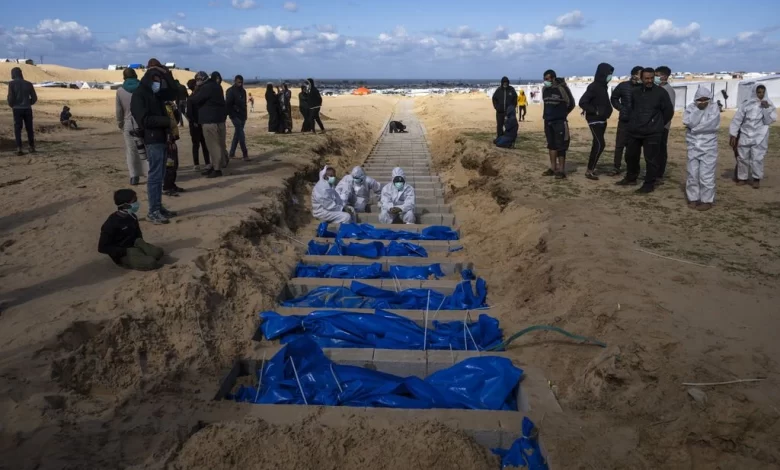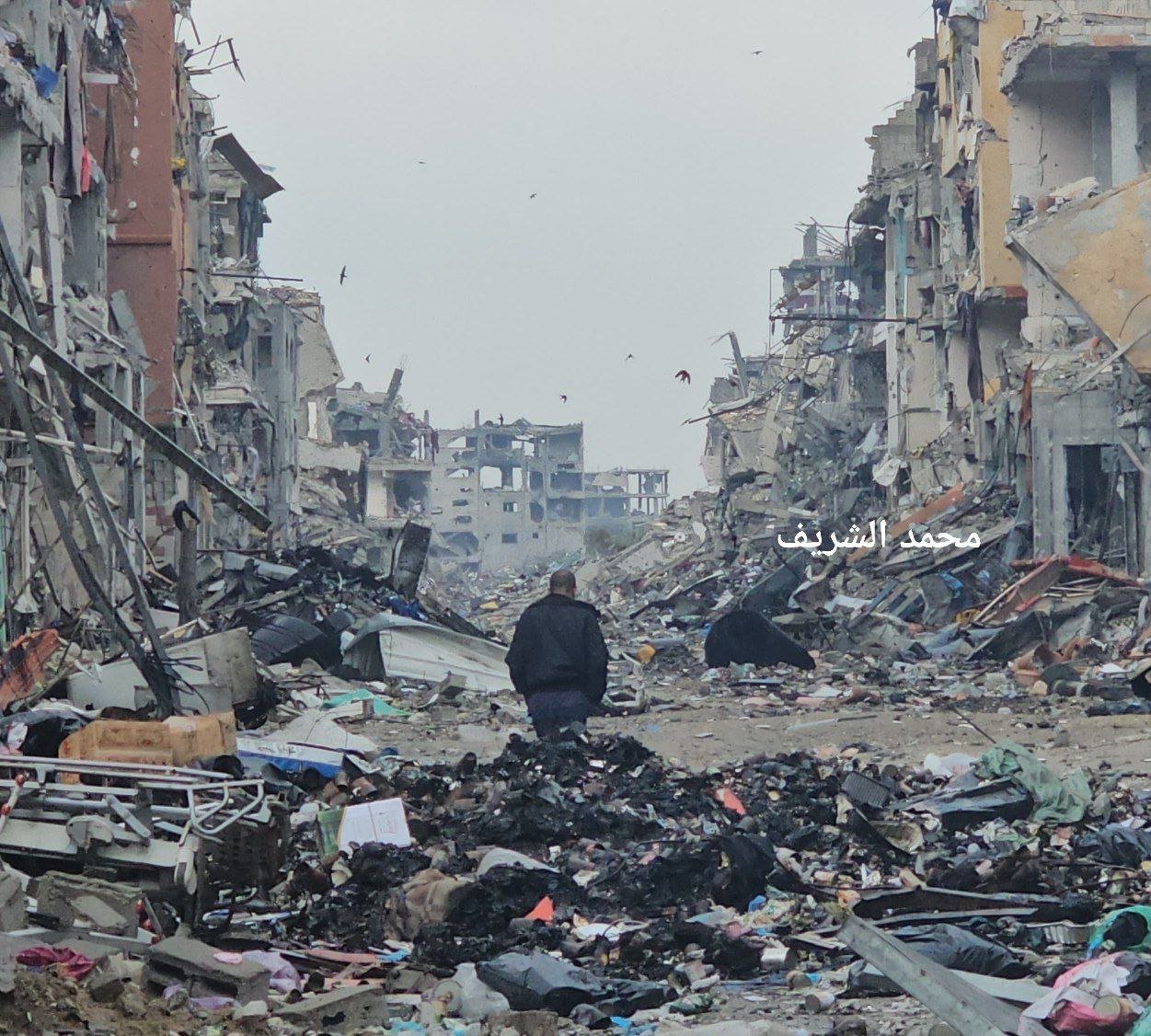The Saudi Foreign Ministry announced, Sunday, its rejection of Israeli Prime Minister Benjamin Netanyahu’s statements about establishing a Palestinian state on the Kingdom’s lands. It stated that these comments are “aimed to divert attention from the crimes committed by the Israeli occupation against the Palestinians in Gaza, including the ethnic cleansing they are subjected to.”
The ministry stressed, in a statement, that “the Palestinian people have a right to their land, and are not intruders or immigrants who can be expelled whenever the brutal Israeli occupation wants.”
In response to Netanyahu, it added: “This extremist occupation mentality does not understand what the Palestinian land means to the brotherly Palestinian people and their emotional, historical and legal connection to it, and does not consider that the Palestinian people deserve life in the first place.”
It continued that “this extremist occupation mentality completely destroyed Gaza and killed and injured 160,000 Palestinians, most of whom were children and women, without the slightest human feeling or moral responsibility.”
With American support, Israel committed genocide in Gaza between 7 October, 2023 and January 19, 2025, leaving more than 159,000 Palestinians dead and wounded, most of them children and women, and more than 14,000 missing.
The Saudi ministry pointed out that “the owners of these extremist ideas are the ones who prevented Israel from accepting peace, by rejecting peaceful coexistence, rejecting peace initiatives adopted by Arab countries, and practicing systematic injustice against the Palestinian people for more than 75 years.”
It stressed that “the extremist occupation mentality does not care about right, justice, law, and the values established in the United Nations Charter, including the right of a person to live in dignity on his land.”
The Kingdom also appreciated “what sister countries announced in terms of condemnation, disapproval, and complete rejection of what Netanyahu stated regarding the displacement of the Palestinian people from their land,” according to the same statement.
It explained that “these positions, which reject the establishment of a Palestinian state on the lands of the Kingdom, confirm the centrality of the Palestinian cause to Arab and Islamic countries.”
The Saudi Foreign Ministry concluded by saying that “the right of the brotherly Palestinian people will remain steadfast, and no one will be able to take it away from them no matter how long it takes, and lasting peace will not be achieved except by returning to the logic of reason and accepting the principle of peaceful coexistence through the two-state solution.”
In response to its firm position adhering to the establishment of a Palestinian state, Netanyahu said on Friday that “Saudi Arabia has vast areas and can establish a Palestinian state on them,” in response to a question from the Hebrew Channel 14 broadcaster regarding Riyadh’s insistence on establishing a Palestinian state as a condition to normalize relations with Tel Aviv.
Netanyahu claimed that “Riyadh does not stipulate the establishment of a Palestinian state for normalization with Israel.”
On more than one occasion, Saudi Arabia has stipulated the Israeli government’s approval of the establishment of a Palestinian state on the 1967 borders in exchange for normalizing relations.
Netanyahu’s statements come days after US President Donald Trump spoke about his country’s intention to seize the Gaza Strip and displace the Palestinians from it, and that Saudi Arabia no longer stipulates the establishment of a Palestinian state for normalization with Israel, which sparked widespread regional and international rejection.
Since 25 January, Trump has been promoting a plan to displace Palestinians from Gaza to neighboring countries such as Egypt and Jordan, which was rejected by both countries, and was joined by other Arab countries and regional and international organizations as reported by Anadolu news.











